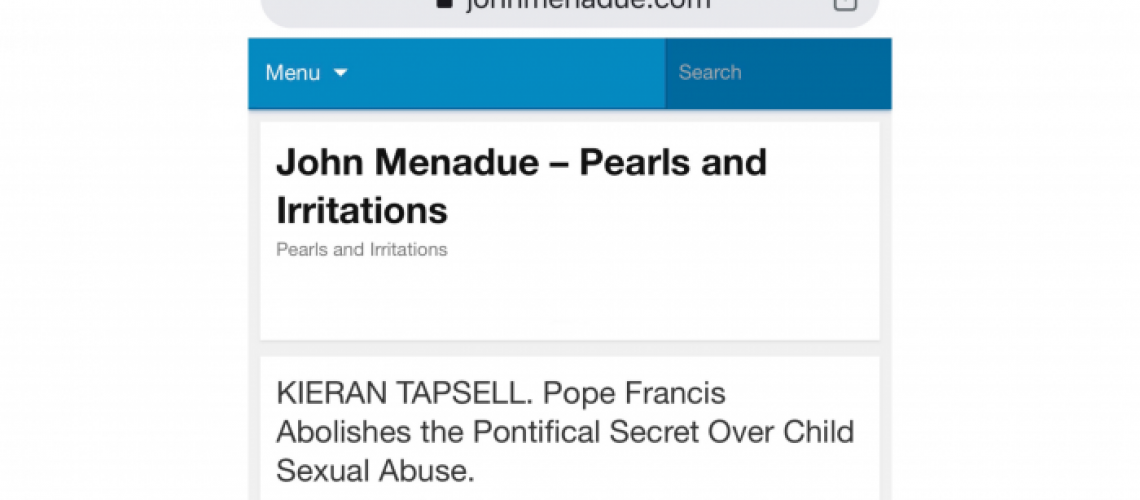On 17 December 2019, Pope Francis abolished “Pontifical Secret” in a document entitled Instruction on the Confidentiality of Legal Proceedings. Archbishop Scicluna, who has been at the forefront of reforms, is reported to have said: “local dioceses and religious congregations have the right and duty to share information with victims and with the civil authority as the pontifical secret cannot be invoked to impede or hinder that.” | The abolition of the pontifical secret over child sexual abuse by clergy, first introduced in 1922 and known then as the secret of the Holy Office, is at least a first step in the Church returning to its traditions of 1500 years of regarding the sexual abuse of children by clergy as a crime that must be punished by the State. The second step is to return to the position prior to 1917 when Pope Benedict XV in promulgating the first Code of Canon Law abolished the decrees of three popes and four Church Councils which required clerical sex abusers to be stripped of their status as clerics and handed over to the civil authorities. Handing them over is no longer necessary as we have police forces to which they can be reported. Mandatory reporting under canon law will return the Church to its own tradition that it abandoned in 1917 with disastrous results for the children of the world. |
| This failure to require mandatory reporting creates a headache for Pope Francis if he is serious about making bishops accountable for cover ups. A fundamental principle of every legal system is that no one can be punished unless they break the law. This principle is expressed in Canon 221§3 of the 1983 Code of Canon Law. If bishops are not breaking canon law by failing to report to the civil authorities where there is no civil reporting law, then they cannot be held accountable. |
|

